Oct 11, 2025 — Jungto Dharma School Q&A, Farm Work
Hello. Today, after returning to Korea, Sunim spent the day at Dubuk Jungto Retreat Center for the first time in a while.
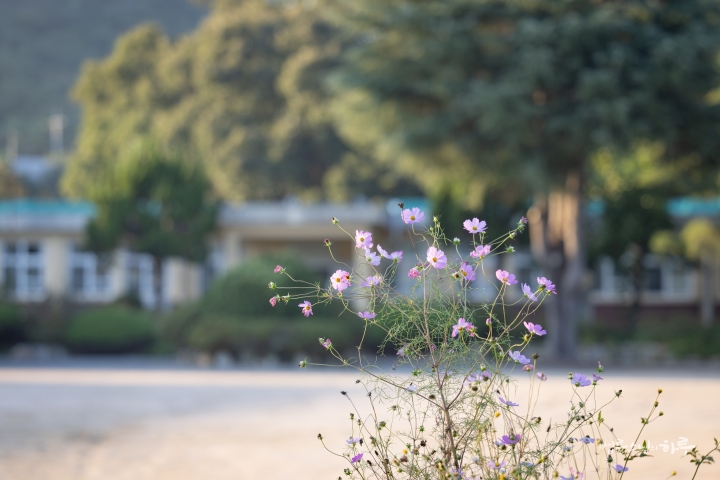
After completing morning practice and meditation, Sunim greeted the members of the Dubuk lay Sangha. The members greeted Sunim with three bows, and Sunim encouraged them for their hard work farming during the hot summer.
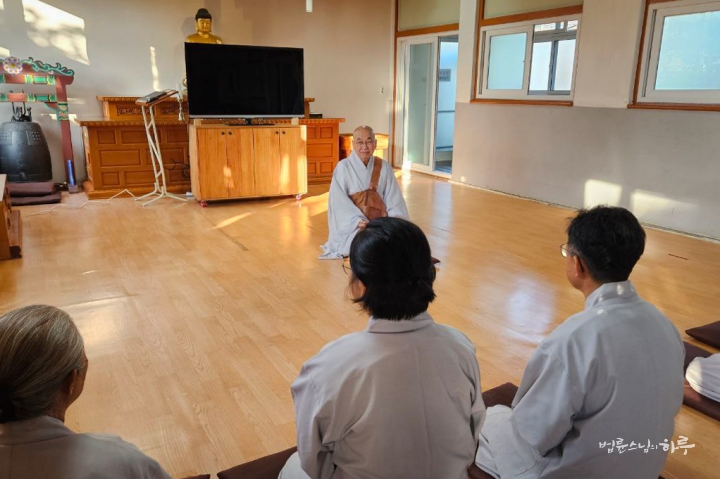
“Thank you all for your hard work farming this summer.”
At 8 AM, Sunim held an online Dharma Q&A session with Jungto Dharma School students from the broadcasting room at Dubuk Retreat Center.
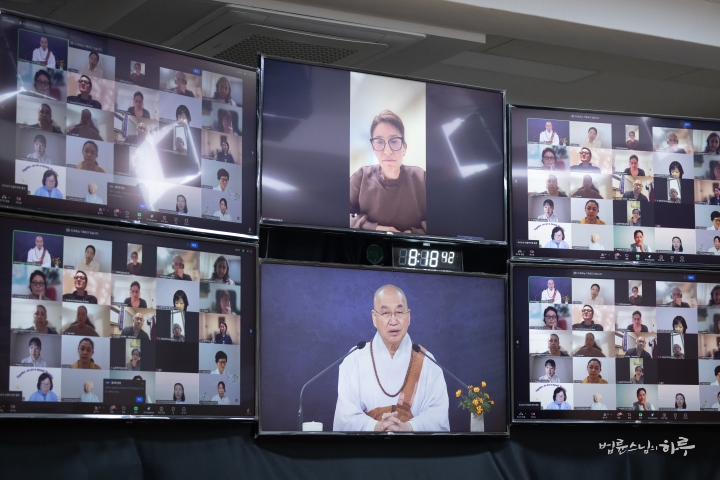
Students attending Jungto Dharma School from 13 countries including Australia, Canada, India, Japan, the Philippines, Korea, Singapore, Sri Lanka, the United States, Vietnam, France, Germany, and Israel gathered together in the online space. Realizing that learning knows no borders, everyone warmly greeted each other.
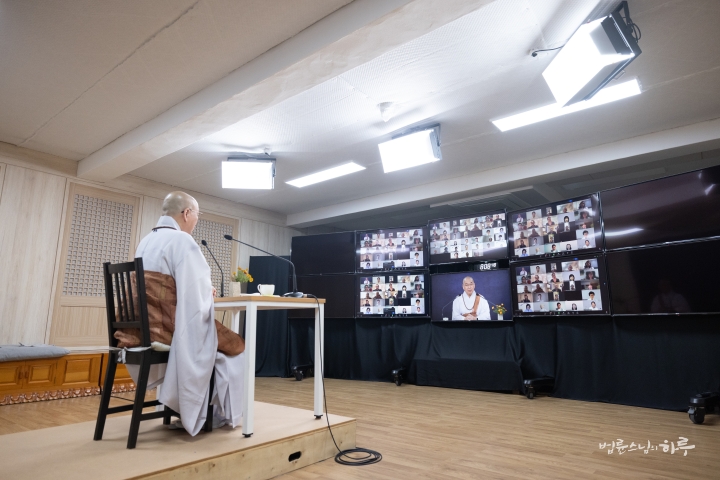
When Sunim entered the video conference room, three students representing the group shared their impressions from attending classes so far.
“I’m finding it to be a really beautiful experience. It’s such an amazing community united around the world, and I’ve learned so much. It’s been incredible for me.”
“I enrolled with a light heart at first, but now I’ve come to realize that I’m not learning doctrine or philosophy, but rather learning a practice of becoming aware of my mind, letting go, and discovering. There’s still so much for me to learn, but I will continue to practice one thing at a time—what I can do here and now. Thank you.”
“I think the biggest thing is sharing with each other and seeing that people are going through so much more than you are. Also, people from all around the world are all experiencing similar feelings. It just makes you realize our own ignorance of things and how we need to bring joy—not just happiness—and how do you do that every day? Simply by things like getting up in the morning and telling yourself that all things will work out and it’ll be all fine. I’m realizing that things used to upset me more before, but now I have a better perspective on things, and it’s helping me bounce back better and lead my life more calmly, I should say.”
The students then requested a Dharma talk from Sunim with three bows. Sunim opened the dialogue with a greeting.
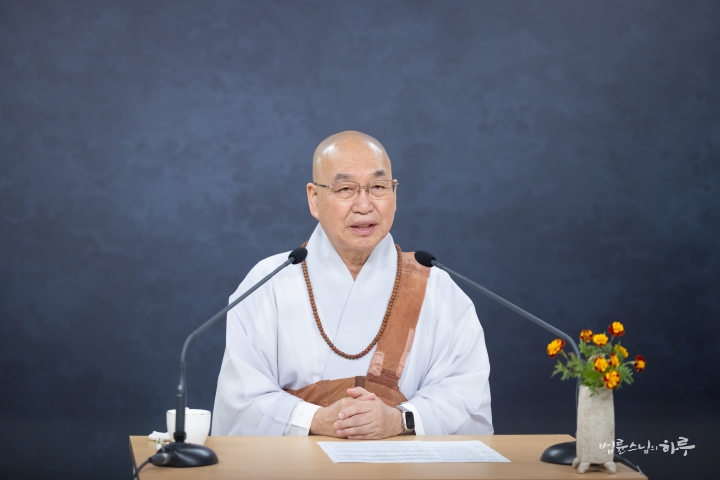
“Here in Korea, autumn has deepened considerably. The rice fields have turned golden yellow as the rice ripens, and persimmons are turning red on the persimmon trees. Chestnuts are falling from the chestnut trees. I’m happy to meet you all during this beautiful autumn season.
Why Can’t We See Facts as They Are?
You have been studying the Buddha’s teachings recently. The Buddha’s teachings explore ‘What is truth?’ and investigate facts. The Buddha said that all the suffering we experience in life arises from not knowing facts as they are—that is, from ignorance. Therefore, to be free from suffering, we should not pray to or rely on some being for help, but rather investigate and discover the truth ourselves. While the object of investigation encompasses everything in the world, the Buddha primarily investigated how humans can be free from suffering—that is, he studied mental processes. Today is a day for you to ask questions about any parts of the Dharma talks you haven’t understood, so you can gain proper understanding.
Our mental processes have the characteristic of becoming ‘habitualized’ or automated when we repeat the same experience several times. In other words, we react automatically. When something becomes habitualized like this, we unconsciously react according to habit the moment we perceive something. Not knowing certain facts is called ‘fundamental ignorance.’ However, even if we awaken from fundamental ignorance and understand, when we suddenly encounter a situation, we unconsciously react according to past habits in that instant. This is called ‘momentary ignorance.’ Therefore, first, we must awaken from fundamental ignorance. Second, to avoid falling into momentary ignorance, we must always be awake in daily life. Since momentary ignorance is an automatically arising mind, we must be awake every moment to avoid falling into it. This is called ‘awareness’ or ‘Sati’ in Pali.
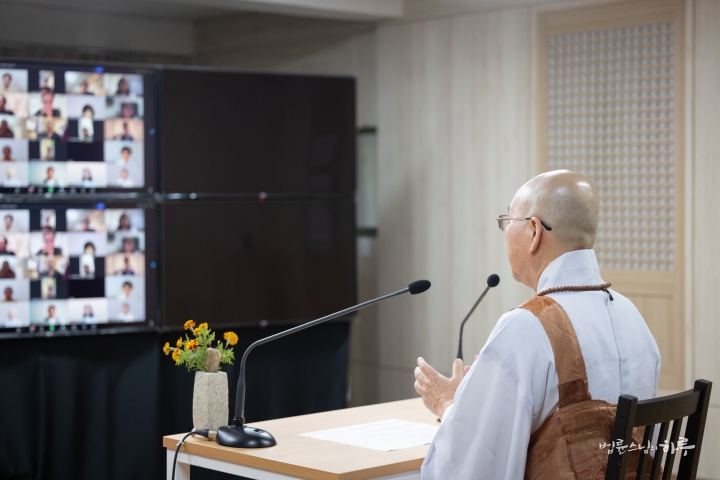
What you learn through video lectures at Jungto Dharma School is mostly about breaking through fundamental ignorance to gain wisdom. However, the practice assignments given each week are about practicing to stay awake in every moment and not fall into momentary ignorance. In other words, it’s about practicing mindfulness in daily life. Practice requires consistency. Breaking through fundamental ignorance actually doesn’t take that long. However, to free yourself from momentary ignorance, you need to practice consistently for a long period. Now, let me hear your questions.”
Next, there was time for participants to freely ask questions about things they had been curious about while attending classes. Six people pressed the hand-raising button and asked Sunim questions. There were questions about the class content, personal concerns, and various other topics. Among them, one person shared her concern about feeling disrespected by her mother-in-law throughout her married life.
I Always Feel Disrespected in My Relationship with My Mother-in-Law
“The question you’ve asked is fundamentally about ‘What kind of relationship should parents and children maintain?’ A couple has and raises children. Because parents, especially mothers, give birth to and raise their children, they have a very strong feeling that ‘the child is mine.’ However, from the perspective of natural law, when children become adults, they become independent and live on their own. At this point, the special relationship between mother and offspring, parent and child, is no longer maintained. Now the child meets another female or male and creates a new family. When children are young, the family relationship of parent and child is established, but when children become adults, they also form a new family relationship as a couple. However, due to psychological attachment, humans continue to maintain the thought ‘this is my child’ even after the child has become an adult. Even when that child meets another woman or man and forms a family, parents still cling to the idea that ‘this is my child.’
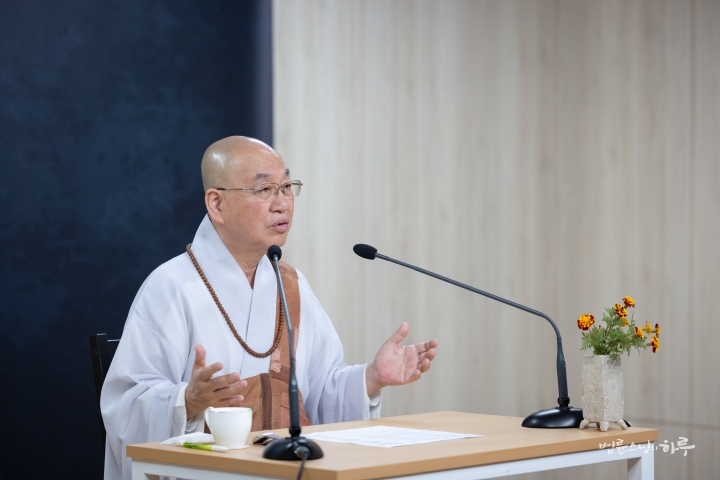
In this case, one man ends up with two women. The woman who is the mother and the woman who is the wife form a relationship. The mother gets involved from the perspective of ‘this is my child,’ and the wife gets involved from the perspective of ‘this is my husband.’ Psychologically speaking, it’s as if one man has a first wife and a second wife. That’s why conflict inevitably arises between the two. Since the positions of the first wife and second wife are equal, even if conflict arises, it is dealt with an equal footing. However, from the positions of mother and wife, the mother has stronger power to intervene. That’s why you, as the daughter-in-law, are in a relationship where you feel oppressed.
Young married women especially suffer a lot in Asian cultures where family relationships are strong. In Western cultures where parent-child relationships are looser, people feel less suffering. However, there isn’t much difference in terms of feeling suffering. If you have a son and he gets married in the future and you have a daughter-in-law, what would happen? Consider whether you could view your son as a stranger and say firmly, ‘You two figure it out on your own,’ or whether you could avoid intervening with your daughter-in-law saying, ‘Why are you treating my son this way?’ Which do you think is stronger – the daughter-in-law’s thought that ‘This person is my husband’ or the mother-in-law’s thought that ‘This person is my son’?”
“I think that both are equally important.”
“Usually, the mother-in-law’s thought that ‘This person is my son’ is much stronger. Because while you happened to meet your husband and got married, for the mother-in-law, this is the son she gave birth to and raised. If you think ‘My husband is a decent person,’ the mother-in-law thinks ‘My son is absolutely wonderful’ – her attachment to her son is that strong. Therefore, you need to understand this mindset of your mother-in-law and have two attitudes toward her.
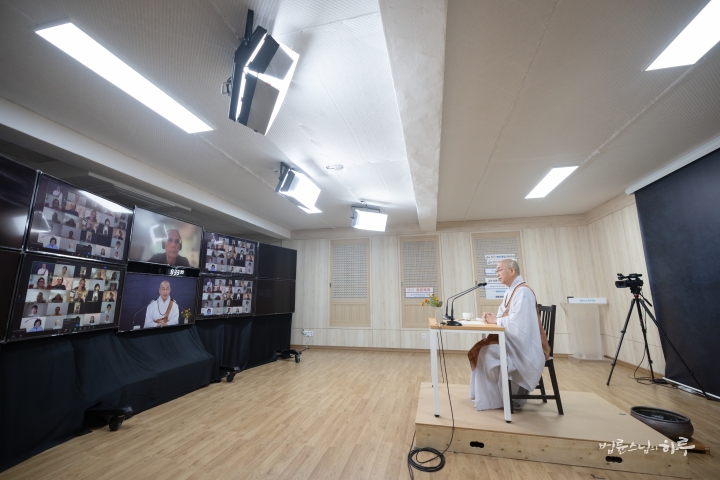
First, you should have this mindset: ‘Thank you for giving birth to and raising such a wonderful son for me.’ Instead of thinking, ‘Why does my mother-in-law interfere in every aspect of our family life?’ you should always maintain a grateful heart toward your mother-in-law. Second, you should have this mindset: ‘I’m sorry for taking your son away from you.’ The more successful their children become, the stronger parents feel about ‘I gave birth to them’ and ‘I raised them,’ and they develop expectations for compensation accordingly. When their son marries another woman and gives all his love to this stranger, the mother-in-law may feel like her son has been taken away. While consciously she may think, ‘I’m happy my son got married,’ subconsciously, the feeling of having something precious taken away always remains. That’s why even when your mother-in-law shows slight irritation, you should say ‘I’m sorry.’
If you maintain these two attitudes of ‘thank you’ and ‘I’m sorry,’ you can maintain the relationship without being hurt by anything your mother-in-law says. In other words, you need to recognize and understand that your mother-in-law’s sense of ownership — ‘This is my son’ — is much stronger than your sense of ownership over your husband — ‘This is my husband.’ And when your mother-in-law says something to your husband, if you have the mindset of ‘She’s dealing with her own son as she wishes. I’m just borrowing her son,’ there won’t be any particular problems.
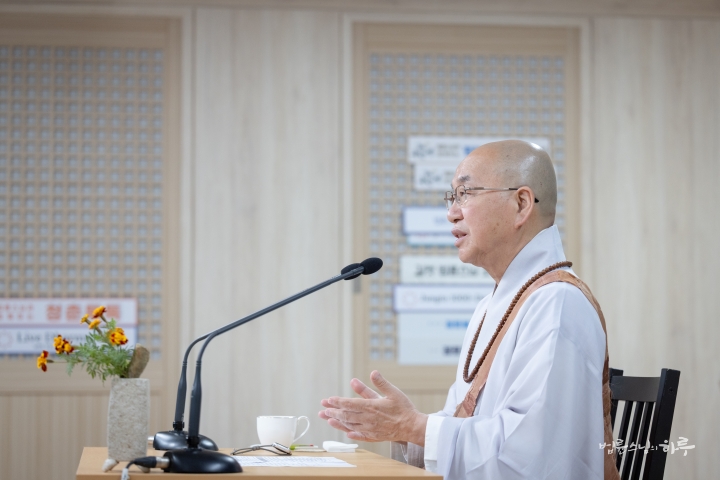
In Asian cultures, it has traditionally been taken for granted that parents are involved in their children’s lives. So this kind of conflict is bound to continue for some time. However, since you have experienced this, when your son becomes an adult in the future, you should not interfere in his life at all, and even when he gets married, you should adopt an attitude of not interfering in any way. But when you actually try it, it won’t be easy for you either.”
“Thank you.”
Questions continued to follow.
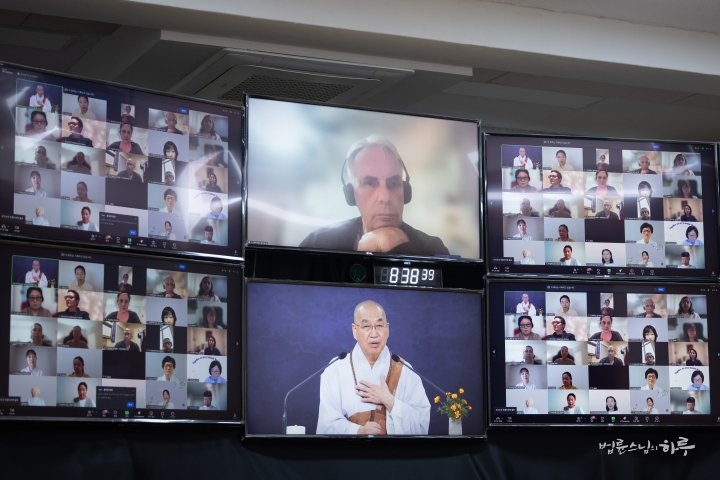
There are clearly unfair things in the world, so is anger a wrong emotion in such cases?
If desire creates suffering, should we not have desires at all, or is it okay as long as we don’t become attached?
How does the Buddhist Middle Way explain emotions like the joy of art or the pain of creation?
When someone clearly does something wrong, isn’t it justified to feel negative emotions?
What commonalities exist between Einstein’s theory of relativity and the Four Pillars of Destiny from the perspective of space and time?
As the conversation continued, it was time to wrap up. They agreed to have another session to address more questions, and the live broadcast ended at 9:30 PM.
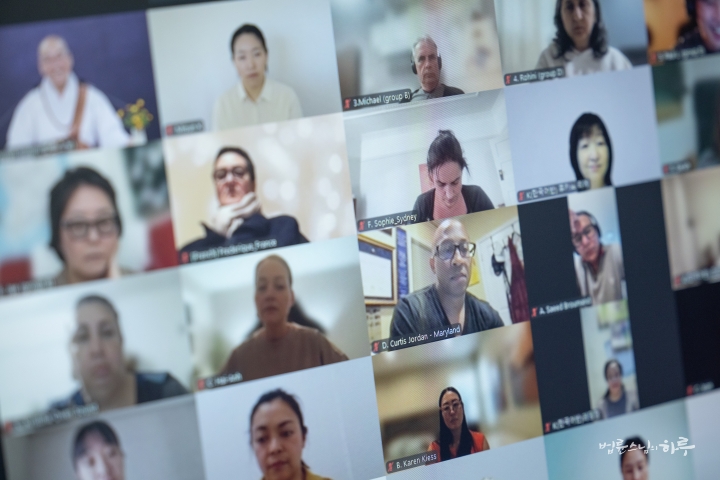
The students gathered in their group video conference rooms to continue with mindful sharing time, while Sunim left the broadcasting room.
Dubuk Retreat Center was already deeply colored with autumn hues. The persimmon trees were laden with orange persimmons. The persimmons, ripened so abundantly that the branches bent under their weight, sparkled in the sunlight, and below them, a few persimmons rolled among the fallen leaves, adding to the leisurely autumn atmosphere.
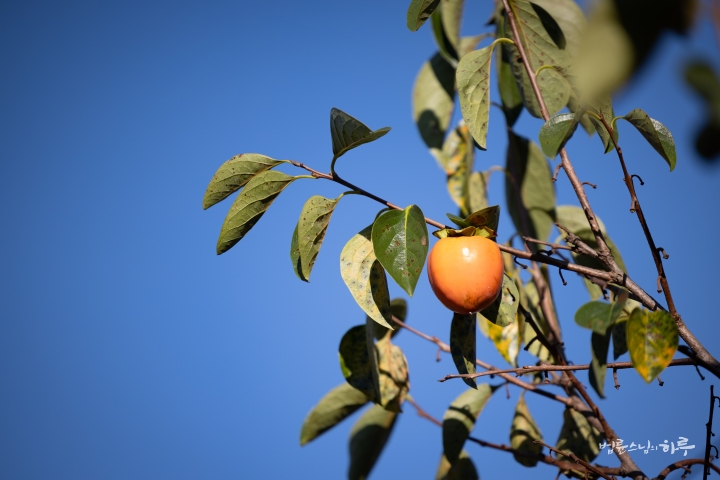
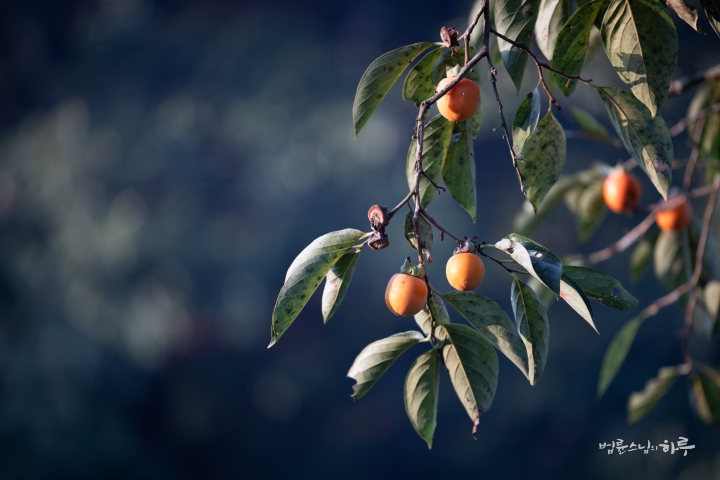
In front of the wall, cosmos flowers danced in the autumn breeze. The pale pink and white petals brushed against each other as if greeting, “Autumn has arrived!”
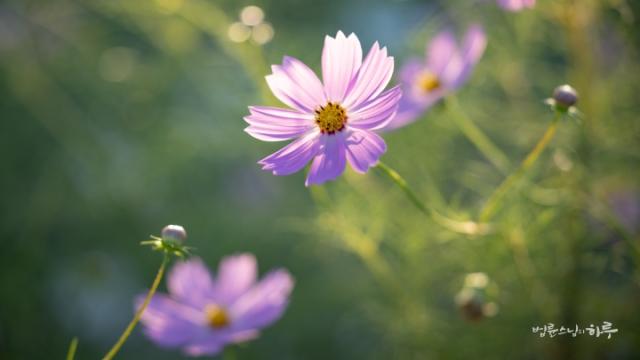
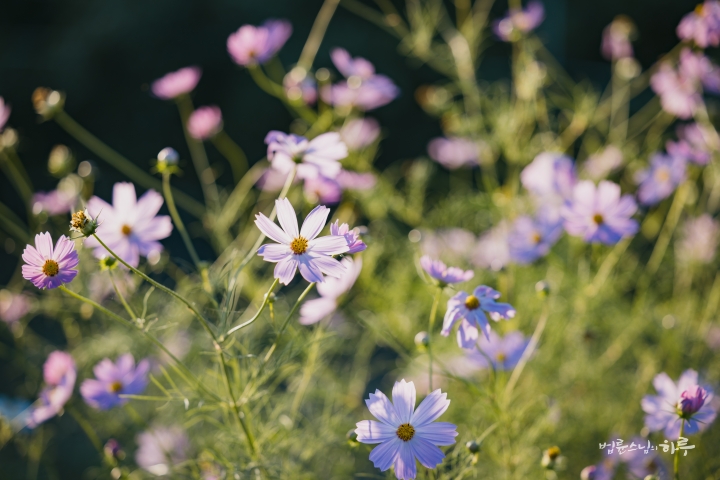
Originally, the plan was to pick chestnuts after the Dharma talk, but due to Sunim’s poor physical condition from the long overseas schedule and jet lag, he took a rest. After lunch, he tried to rest briefly and then do farm work, but he couldn’t get up and continued to rest.
After 4 PM, Sunim got up, put on his work clothes, and headed to the vegetable garden. The cabbage planted a month ago had grown very well.
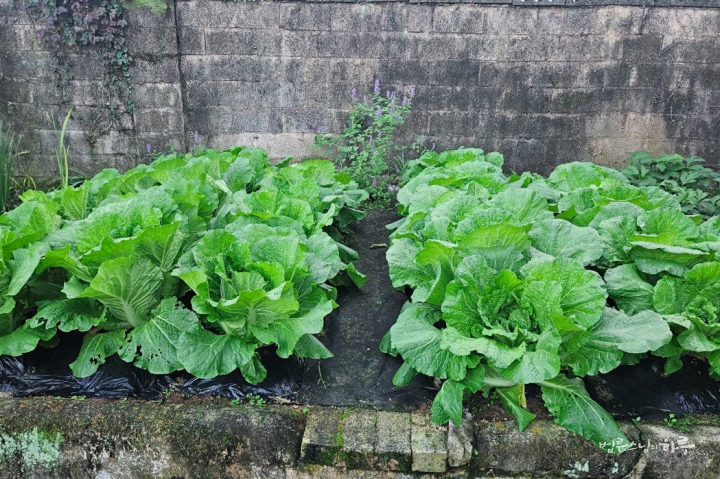
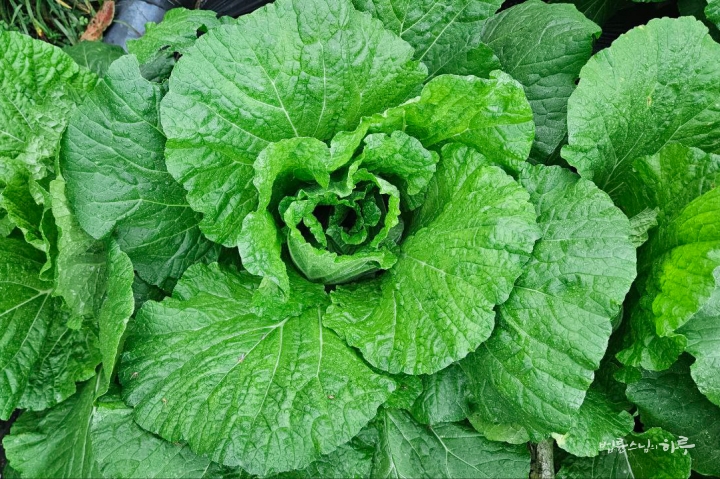
He went to the radish field. Due to frequent rain, the radishes had developed soft rot disease. Sunim cleaned up the diseased side shoots while pulling weeds and tidying up the radish field.
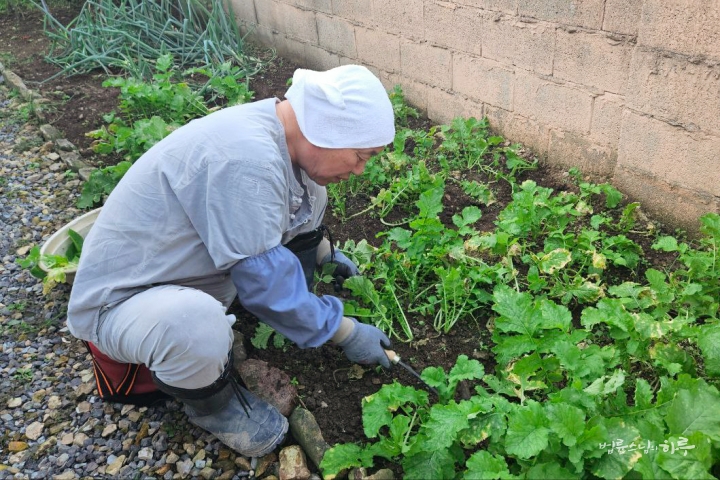
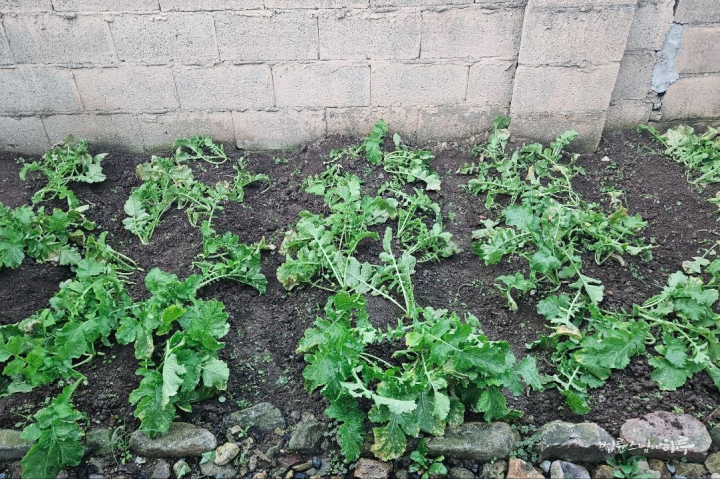
As the weeds were removed, the light green leaves of the radishes were revealed, allowing them to breathe. Each time he cleaned up the side shoots of the radishes, the field gradually transformed into a more organized appearance. The small vegetable garden radiated with the energy of life.
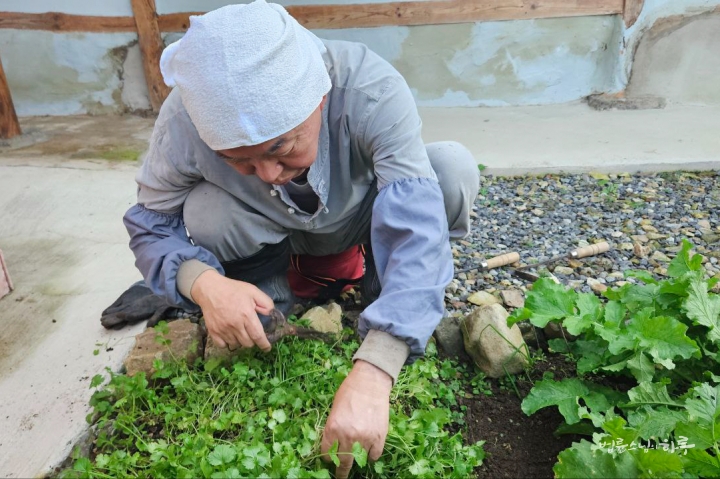
After sunset and dinner, he departed from Dubuk Retreat Center for Mungyeong Retreat Center at 8:30 PM.
After a two-hour drive, he arrived at Mungyeong Jungto Retreat Center at 10:40 PM and concluded the day’s activities.

Tomorrow, he will participate in the Happy Citizens Activist Training Program at Seonyudong Education and Training Center in Mungyeong, where he will take a walk through Seonyudong Valley with Happy Citizens and have conversations about the difficulties they face in their activities.





